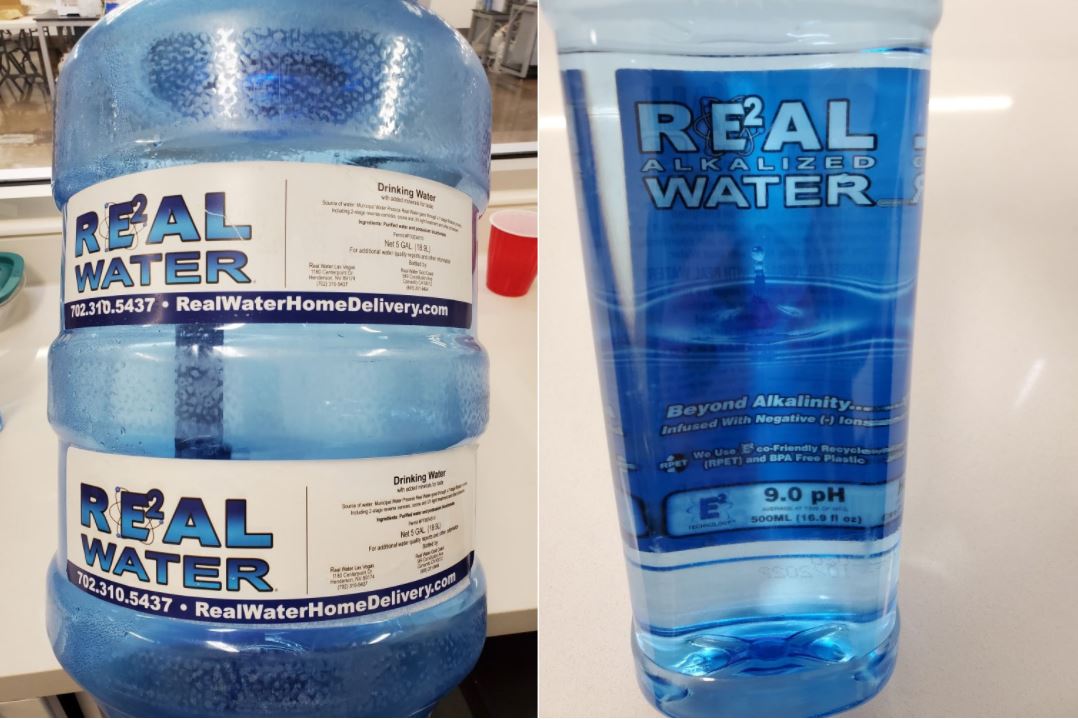5 kids hospitalized with liver failure after drinking ionized 'Real Water'
U.S. health officials are warning people not to use this brand of alkaline water.

U.S. health officials are warning people not to use a brand of alkaline water known as "Real Water" after several children in Nevada who drank the water were hospitalized with liver failure, according to news reports.
Such water goes through an ionizing process to raise its pH so that it becomes more basic or alkaline.
This week, the Food and Drug Administration (FDA) announced it is investigating a number of reports of "non-viral hepatitis," or inflammation of the liver not caused by a viral infection, linked with consumption of Real Water.
In November 2020, five infants and children from four different households developed acute liver failure of unknown cause; and six additional people from those households — including three adults and three children — developed less serious symptoms, including vomiting, nausea and loss of appetite, according to a statement from the Southern Nevada Health District.
So far, the only common factor between all these cases was that they had drunk Real Water, the statement said.
The FDA is investigating the company, which is based in Las Vegas; and in the meantime, the agency is warning consumers, retailers and restaurants not to "drink, cook with, sell or serve" the product, according to the FDA's statement.
The reason for the link between Real Water and the hepatitis cases is unclear; but the Southern Nevada Health District notes that non-viral hepatitis can be caused by exposure to toxins, as well as by autoimmune diseases or drinking too much alcohol.
Sign up for the Live Science daily newsletter now
Get the world’s most fascinating discoveries delivered straight to your inbox.
Real Water is marketed as a "premium, drinking water" that has been "infused with negative ions" and has a pH of 9, according to the company's website.
A water's pH is a measure of how acidic or basic it is, with a range from 0 to 14, according to the U.S. Geological Survey (USGS). Water normally has a neutral pH of 7, and water with a lower pH is considered acidic while water with a higher pH is considered basic, or alkaline. (Specifically, acidic water has more free hydrogen ions, while alkaline water has more free hydroxyl, or OH, ions, according to the USGS.)
Recently, drinking alkaline water with a pH of 8 or 9 has become a health trend, with followers claiming that it can make you age more slowly, maintain a healthy pH in the body and prevent diseases such as cancer, according to Healthline. But there's no evidence that alkaline water has any health benefits over regular water, Healthline reported. (On its website, Real Water says its product "promotes a balanced pH" and can "detoxify," but notes that "these statements have not been evaluated" by the FDA.)
Drinking alkaline water is generally considered safe, although water with high alkaline levels can have an unpleasant taste, according to Healthline. (Acidic water, on the other hand, can be dangerous because it can dissolve metals from pipes and thus become polluted, according to USGS.) The body is generally good at maintaining a pH close to neutral (around 7.4), but too high alkaline levels in the blood can lead to gastrointestinal issues and skin irritation, Healthline reported.
In a statement, Real Water President Brent Jones said, "Our goal is to diligently work with the FDA to achieve a swift resolution," CBS News reported.
"Real Water is asking that all retailers pull the product from the shelf, effective immediately, and hold it in the back rooms or return it to the distributors," Jones' statement said. "Any customer who has purchased Real Water from a retailer is asked to return the product."
One Nevada family has filed a lawsuit against the company alleging that they became sick from the water, CBS News reported.
Originally published on Live Science.

Rachael is a Live Science contributor, and was a former channel editor and senior writer for Live Science between 2010 and 2022. She has a master's degree in journalism from New York University's Science, Health and Environmental Reporting Program. She also holds a B.S. in molecular biology and an M.S. in biology from the University of California, San Diego. Her work has appeared in Scienceline, The Washington Post and Scientific American.









